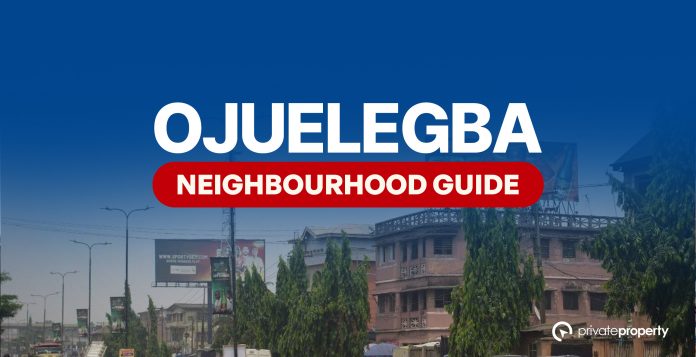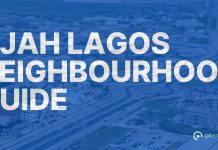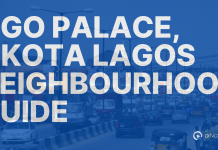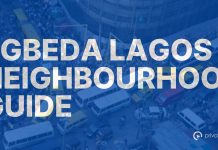Ojuelegba, a bustling neighborhood in the heart of Lagos, Nigeria, is a melting pot of culture, history, and urban vibrancy. Known for its energetic atmosphere and prominent role in the city’s transport system, Ojuelegba is a place where tradition and modernity intertwine.
This guide explores the various facets of Ojuelegba, offering insights into its history, culture, landmarks, lifestyle, and what makes it one of Lagos’ most iconic neighborhoods.
A Brief History of Ojuelegba
Ojuelegba is a name that resonates with many Lagosians, not only for its historical significance but also because of its cultural influence. Originally named after the Ojulegba family, the area was once a quiet neighborhood but evolved over the years into one of Lagos’ most important urban hubs. Its rapid urbanization can be attributed to its strategic location in Lagos Mainland, particularly as a key intersection for several major roads and transport routes.
Ojuelegba is also known for its association with the Nigerian music scene, with legends like Fela Kuti and various Afrobeat stars passing through the neighborhood, cementing its cultural influence. The area has maintained its relevance, becoming a focal point for both business and entertainment in Lagos.
Culture and Vibe
Ojuelegba is a true representation of the energetic and diverse Lagos lifestyle. The neighborhood is a bustling commercial center with street vendors, small shops, and eateries lining its roads. The sounds of honking cars, the chatter of traders, and the music that spills from local spots create a symphony that’s quintessentially Lagosian.
The neighborhood’s streets are filled with life, from the busy traffic to the lively conversations that echo from the vibrant markets. It’s not unusual to see a variety of people from different walks of life—students, professionals, musicians, and traders—walking side by side, each contributing to the unique character of Ojuelegba.
Key Landmarks
Ojuelegba Bus Stop
Perhaps the most iconic landmark in Ojuelegba, this bus stop is a major transit point for commuters traveling to and from various parts of Lagos. The area around the bus stop is always filled with activity as buses, taxis, and Okadas (motorcycle taxis) bustle in and out. It’s a great place to experience the fast-paced nature of life in Lagos.
The National Theatre
Though not directly in Ojuelegba but nearby in Iganmu, the National Theatre is one of the most important cultural landmarks in Lagos and a hub for Nigerian art, theater, and performances. It’s only a short distance from Ojuelegba, making the area an essential part of the city’s creative scene.
The Music Scene
Ojuelegba is often mentioned in Nigerian music, particularly in the genre of Afrobeat. The famous Nigerian artist Wizkid immortalized Ojuelegba in his hit song, bringing worldwide attention to the neighborhood. The area is home to various music studios, small performance venues, and local hangouts where up-and-coming artists often showcase their talents.
Local Markets and Street Food
For those looking to experience the local culture, Ojuelegba offers an abundance of street food stalls and markets. From grilled corn and suya (spicy grilled meat) to the famous Lagos-style jollof rice, the food scene in Ojuelegba is a delightful exploration for food lovers. You can also find various shops selling local goods, from fabrics to electronics, at bargain prices.
Real Estate and Living in Ojuelegba
Ojuelegba, like much of Lagos, has seen rapid urban growth in recent years. The area is a mix of residential and commercial properties, with many apartment complexes, houses, and office spaces dotting the neighborhood. While the residential areas might not be as quiet as more upscale locations like Victoria Island or Lekki, the neighborhood offers a vibrant, city-centric lifestyle.
Also see: Properties for sale in Ojuelegba
For those who prefer being close to the action and don’t mind the hustle and bustle, Ojuelegba is an ideal place to live. Rental prices in the area are generally more affordable compared to more central areas of Lagos, making it an attractive option for young professionals, students, and entrepreneurs looking to live in a well-connected part of the city.
Transportation and Accessibility
Ojuelegba is a major transportation hub in Lagos. The neighborhood is served by a number of bus routes and the ever-busy Ojuelegba Bus Stop, making it easy to travel to different parts of the city. The Lagos State Government’s ongoing efforts to improve public transportation include the development of the Blue Line metro system, which will connect Ojuelegba to other parts of the city.
With its central location and connectivity, Ojuelegba is a convenient base for anyone working or studying in Lagos. Whether you’re commuting by bus, motorcycle, or private car, getting in and out of the neighborhood is relatively easy.
What Makes Ojuelegba Special
Ojuelegba isn’t just a neighborhood; it’s a living, breathing symbol of Lagos’ spirit. It represents the resilience, the drive, and the relentless energy that characterize the city as a whole. The fusion of culture, commerce, and creativity in Ojuelegba makes it one of the most vibrant and exciting places to experience in Lagos.
The neighborhood’s uniqueness lies in its diversity—everyone, from traders to artists to students, contributes to the colorful tapestry that is Ojuelegba. The local food, music, and traditions continue to thrive alongside modern developments, creating a perfect blend of old and new.
Final Thoughts
Ojuelegba may be known for its busy streets, traffic, and noise, but beneath the hustle and bustle lies the true essence of Lagos. It’s a place where stories are told, businesses thrive, and the future of Lagos is constantly being shaped. Whether you’re passing through, living here, or just visiting, Ojuelegba offers a genuine Lagos experience like no other. It’s not just a neighborhood; it’s an adventure in every sense.
So, next time you find yourself in Lagos, take a stroll through Ojuelegba. Who knows—you might just discover the heartbeat of the city.









